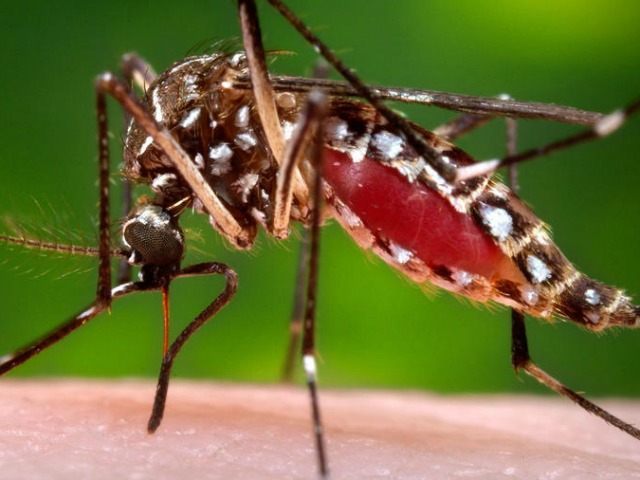Brazil confirms this week it has documented a staggering 91,387 cases of Zika in 2016, with more than 7,000 cases being pregnant women. The World Health Organization (WHO) warns the number of Zika cases globally is set to increase, though cooling temperatures may finally lower the rates of infection in Brazil itself.
The Brazilian newspaper Folha de S. Paulo has published the new government statistics, which nearly guarantee that more than 100,000 Zika cases will be recorded this year, though Brazil is nearing the Southern Hemisphere’s autumn. It notes that health experts nationwide are alarmed not just by the rates of Zika contraction, but by the “triple epidemic” of related diseases chikungunya and dengue, both spread by the aedes aegypti mosquito. In addition to these three diseases, the mosquito is also capable of spreading yellow fever.
The Folha notes that the host city for the 2016 Summer Olympics, Rio de Janeiro, leads the number of documented Zika cases with 25,930 so far. As Zika is known to spread in two ways – through mosquito bites and by sexual transmission – tourists planning to travel to Rio for the Olympic Games are being warned to wear long-sleeved clothes and engage only in protected sex to avoid Zika.
WHO announced Monday that it expects the number of Zika cases to decline in Brazil, but is preparing for a “marked increase” in Zika cases in the Northern Hemisphere as temperatures warm. The only nations in the Western Hemisphere not to boast a significant population of the relevant mosquito species are Chile and Canada, though both have documented Zika cases within their borders in individuals who traveled abroad.
WHO’s assistant director general, Marie-Paule Kieny, told reporters that Zika in Brazil was “clearly on the decline,” though she did not provide numerical evidence for this. She warned that the virus remains a “global emergency.”
A study published recently estimates that up to two billion people worldwide are at risk for contracting Zika.
Brazil is hoping that the cooling weather will help boost ticket sales for the Olympics. As early as February, airlines and travel groups began offering free cancelations to trips to affected regions – Brazil, as well as Colombia – for pregnant women, or women who fear they could become pregnant. Some fear that new studies are approaching tangible conclusions regarding new ways for Zika to enter the human bloodstream; for example, a recent study found certain Brazilian primates carrying Zika in their blood, a sign that a human being may be able to contract Zika from another primate species.
Pregnant women are, by far, the most at risk for serious consequences stemming from contracting Zika. An estimated 80 percent of Zika carriers show no symptoms and may not know they have the disease. Those who do, exhibit mild symptoms of infection, such as conjunctivitis and low-grade fever.
In pregnant women, however, the virus appears to immediately attack the fetus, etching away at brain development. Babies born to mothers carrying Zika are often diagnosed with microcephaly, a condition in which the baby’s skull is too small for its brain, crushing the brain and causing severe damage.
Doctors are beginning to see even more advanced deterioration in new cases of Zika infants, however. The Wall Street Journal reports that doctors have found not only a small head, but undeveloped brains carrying water where vital brain structures that control vision and basic thought should be.
“These aren’t just microcephaly, like a slightly small head. The brain structure is very abnormal,” Jeanne Sheffield, director of maternal-fetal medicine at the Johns Hopkins School of Medicine, told the newspaper.
Brazil is facing not only the challenge of convincing women to travel to the Olympics despite this threat, but convincing potential tourists to overlook the large-scale political upheaval in the country. Growing political discord within Brazil has led many to reconsider traveling there, as the virus remains a threat in a government in revolt, distracted by too many other developing crises to give Zika the necessary attention.
Emblematic of this is the recent resignation of Marcelo Castro, the nation’s minister of health. Castro will step down on Wednesday, after having received criticism for warning in January that the Zika outbreak was “more serious than we can imagine” and that the Brazilian government was unprepared for such a development.
Castro is not stepping down as a result of any of his actions in office, however; he is a member of the Brazilian Democratic Movement Party (PMDB), formerly part of a unity government with President Dilma Rousseff. In March, the party voted to break away from the ruling Workers’ Party coalition, allowing legislators to vote for Rousseff’s impeachment. The departure forced all PMDB office-holders in Rousseff’s employ, except Vice President Michel Temer, to step down or resign from the party.

COMMENTS
Please let us know if you're having issues with commenting.